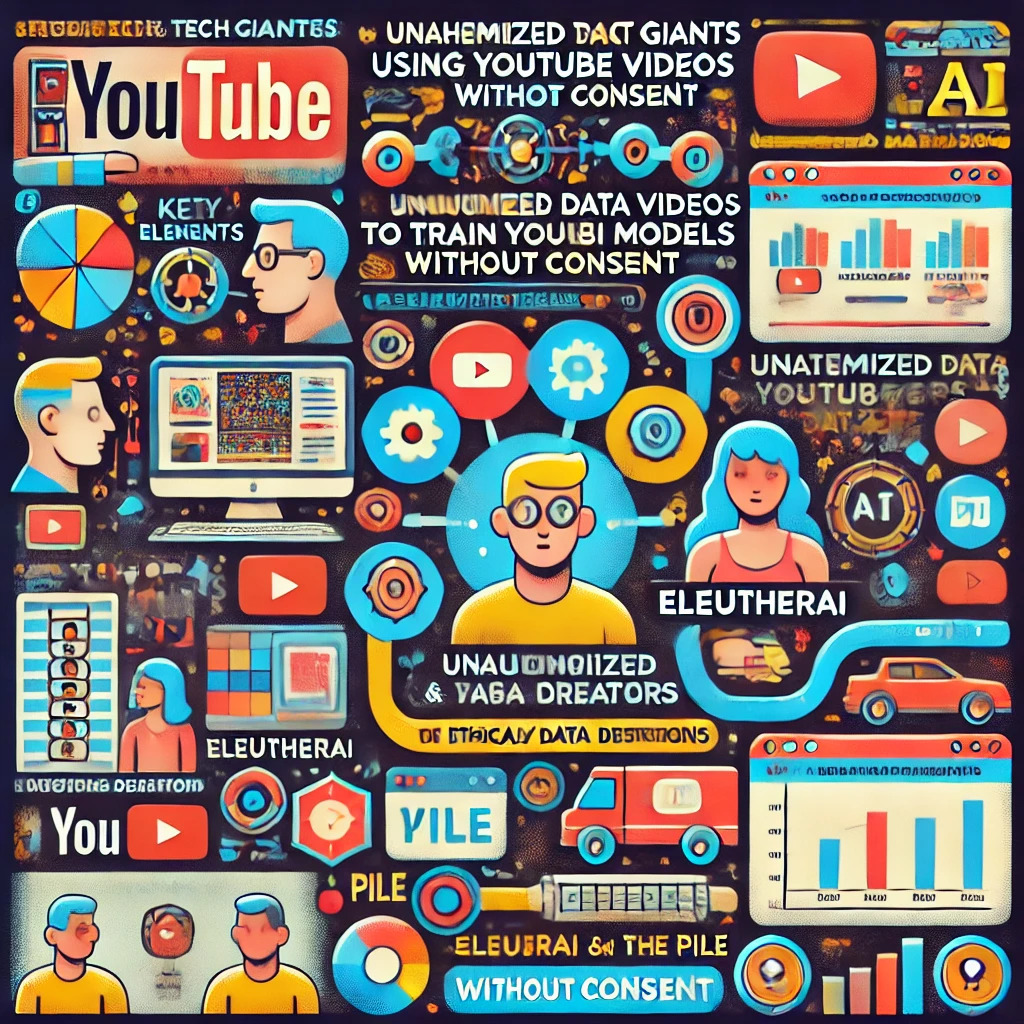In recent revelations, major technology companies, including Apple, have been implicated in the unauthorized use of YouTube videos to train AI models. This development raises significant ethical and legal concerns about data usage and intellectual property rights in the digital age. The investigation conducted by Proof News has uncovered that subtitle files from over 170,000 videos were used without the creators’ consent, highlighting a growing issue in the tech industry.
The Scope of the Issue
Unauthorized Data Harvesting
According to the report, subtitle files, which serve as transcripts of video content, were extracted by a third-party non-profit organization called EleutherAI. These subtitles were then utilized by several tech giants, including Apple, Nvidia, and Salesforce, to train AI models. This practice contravenes YouTube’s terms and conditions, which explicitly prohibit the extraction of materials from the platform without permission.
Affected Creators
Prominent content creators such as Marquees Brownlee (MKBHD), MrBeast, PewDiePie, Stephen Colbert, John Oliver, and Jimmy Kimmel were among those whose videos were used. The sheer volume of data—subtitles from 173,536 videos across 48,000 channels—illustrates the extensive scale of this operation.
The Role of EleutherAI
The Pile Dataset
EleutherAI compiled the subtitle files into a dataset known as the Pile, which is accessible to anyone with sufficient computing resources. The intent was to provide training materials for small developers and academics. However, the dataset’s availability led to its use by major corporations like Apple, Nvidia, and Salesforce. These companies leveraged the dataset to enhance their AI capabilities, including Apple’s development of the OpenELM model.
Ethical and Legal Concerns
While the dataset was publicly available, its use by large tech companies raises ethical questions. The legal implications of utilizing data obtained without explicit consent are significant, particularly in light of YouTube’s policies. This situation exemplifies the complex legal landscape surrounding data scraping and AI training.
The Implications for AI Development
Legal Ramifications
The use of scraped data for AI training poses substantial legal risks. Companies must navigate a legal minefield when using third-party datasets, as evidenced by multiple instances of AI models inadvertently plagiarizing content. This issue is exacerbated when the source data is obtained without proper authorization.
Ethical Considerations
Beyond the legal aspects, there are ethical implications to consider. The unauthorized use of creators’ content undermines their intellectual property rights and can damage trust between content creators and tech companies. Ensuring ethical AI development practices is crucial for maintaining this trust and upholding industry standards.
Apple’s Involvement
Good Faith Usage?
Apple, Nvidia, and Salesforce used the Pile dataset, which they likely believed to be legitimate and available for public use. However, the fact that the data was obtained through means that violate YouTube’s terms complicates the issue. While these companies did not directly download the data, their reliance on EleutherAI’s dataset implicates them in the ethical and legal challenges associated with its use.
The Need for Transparency
Apple’s lack of response to inquiries about their use of the Pile dataset further complicates matters. Transparency in AI development practices is essential for building public trust and ensuring compliance with legal and ethical standards. Companies must clearly communicate their data usage policies and ensure they adhere to all applicable regulations.
Eve Takes Another Bite Of The Apple
The recent findings about the use of YouTube videos to train AI models highlight significant ethical and legal issues within the tech industry. As AI development continues to advance, it is imperative that companies adhere to strict ethical guidelines and legal requirements to protect intellectual property rights and maintain public trust. The unauthorized use of data not only poses legal risks but also undermines the integrity of AI development. Moving forward, greater transparency and adherence to ethical standards will be crucial for the responsible advancement of AI technologies.



Leave a Reply
You must be logged in to post a comment.